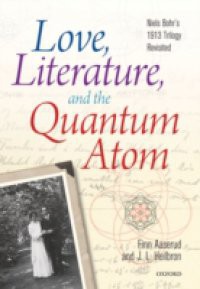Niels Bohr ranks with Einstein among the physicists of the 20th century. He rose to this status through his invention of the quantum theory of the atom and his leadership in its defense and development. He also ranks with Einstein in his humanism and his sense of responsibility to his science and the society that enabled him to create it. Our book presents unpublished excerpts from extensive correspondence between Bohr and his immediate family, and uses it todescribe and analyze the psychological and cultural background to his invention. The book also contains a reprinting of the three papers of 1913 - the Trilogy- in which Bohr worked out the provisional basis of a quantum theory of the atom.























